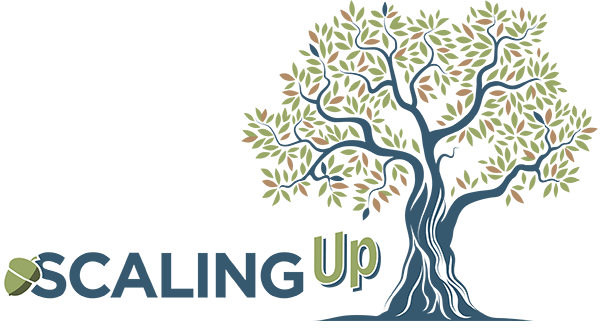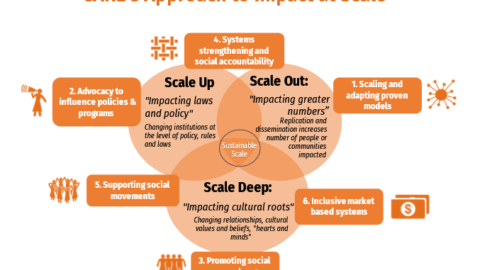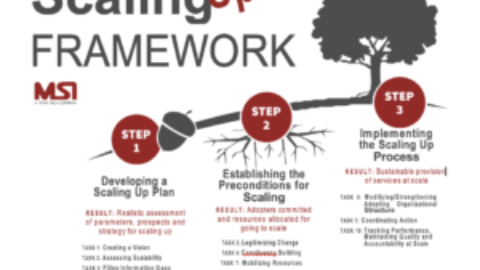By Maude Olivier maude.olivier@international.gc.ca
On January 31, 2019, Global Affairs Canada’s Development Innovation Unit hosted an interactive learning session on Scaling Up Promising Innovations to Accelerate Development Impact. The panel featured experts from across disciplines: Robert McLean, Senior Program Specialist, Policy and Evaluation, International Development Research Center (IDRC); Ellen Martin, Co-Founder and CEO SoJo, Co-author of Scaling Pathways Series; Dr. Richard Kohl, President and Lead Consultant, Strategy, Impact and Learning; and, Dr. Helena Shilomboleni, Food Security and Agricultural Development Researcher, University of Waterloo. The audience included over 130 participants from Global Affairs Canada, other government federal departments, IDRC, partner organizations from Canadian civil-society, academics, and the private sector.
Panelists unpacked the following issues: decision-making on whether or not to scale an innovation, intended versus unintended results of scaling up innovations, the need to analyze the capacity of the entire value chain in the scaling decision-making process, strategies and opportunities for scaling social ventures and the importance of flexible financing, and ways to engage local public and private sector stakeholders in the development, testing and scaling of an innovation, and more.
Overall, panelists agreed that development practitioners and stakeholders need to better understand that scaling is not a linear process and the quality and sustainability of an innovation is as important as quantity. This includes improved efforts to gather lessons learned from scaling experiences and applying those to new projects, which is key for achieving wider and deeper impacts.
Canada’s commitment to advancing development innovation is reflected in the Feminist International Assistance Policy and supports greater experimentation and scaling-up of new solutions to development challenges. Canada is also working to ensure that women and girls are involved in the innovation process, both as beneficiaries and as innovators in their own right – from identifying the problem to designing, testing and scaling up innovative solutions.
In June 2018, under Canada’s leadership, G7 Ministers responsible for international development and humanitarian assistance agreed on the Whistler Principles to Accelerate Innovation for Development Impact. One of the principles calls on global stakeholders to identify scalable solutions that demonstrate high potential to achieve and sustain significant impact and cost-effectiveness to reach the poorest and most vulnerable.



